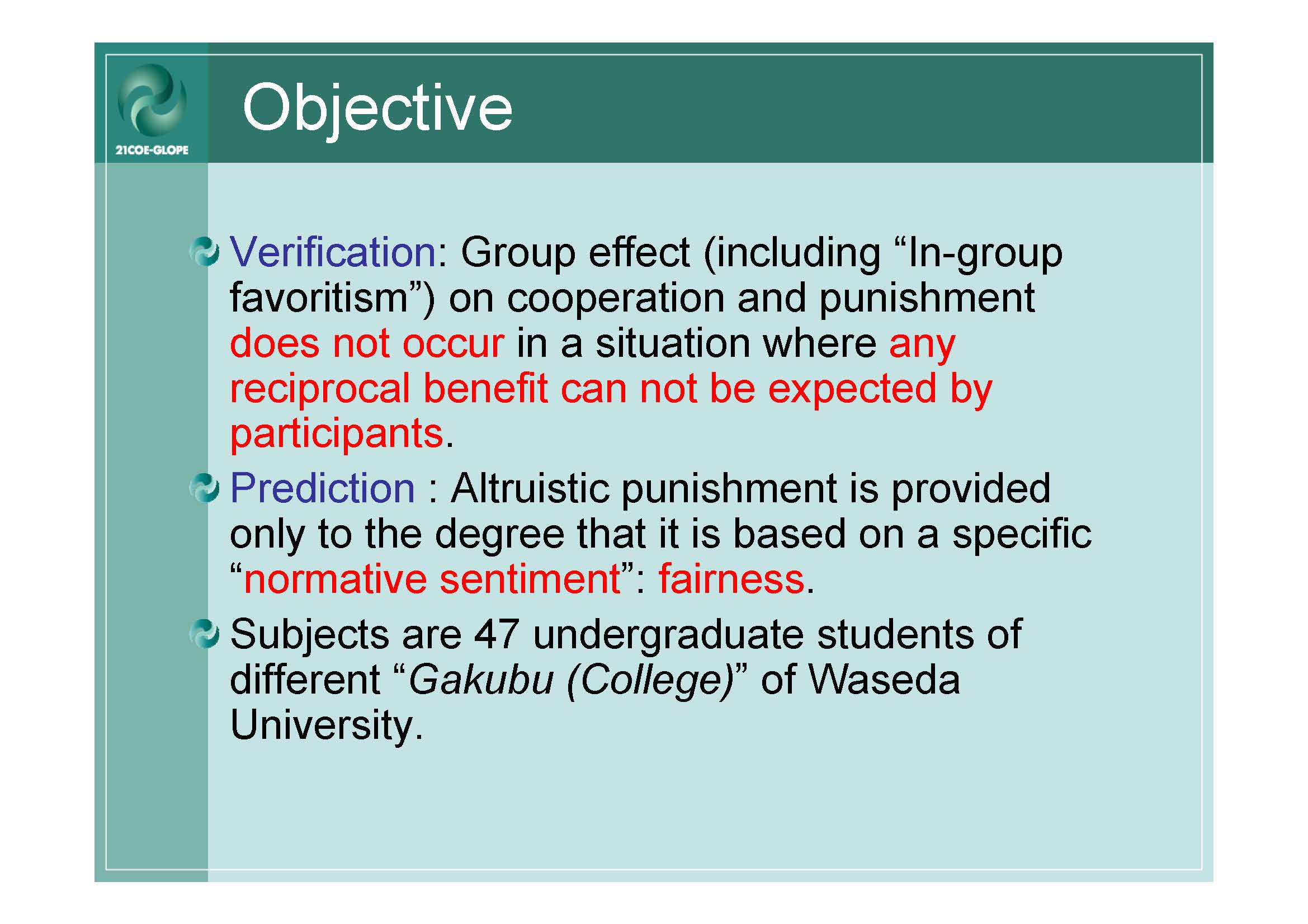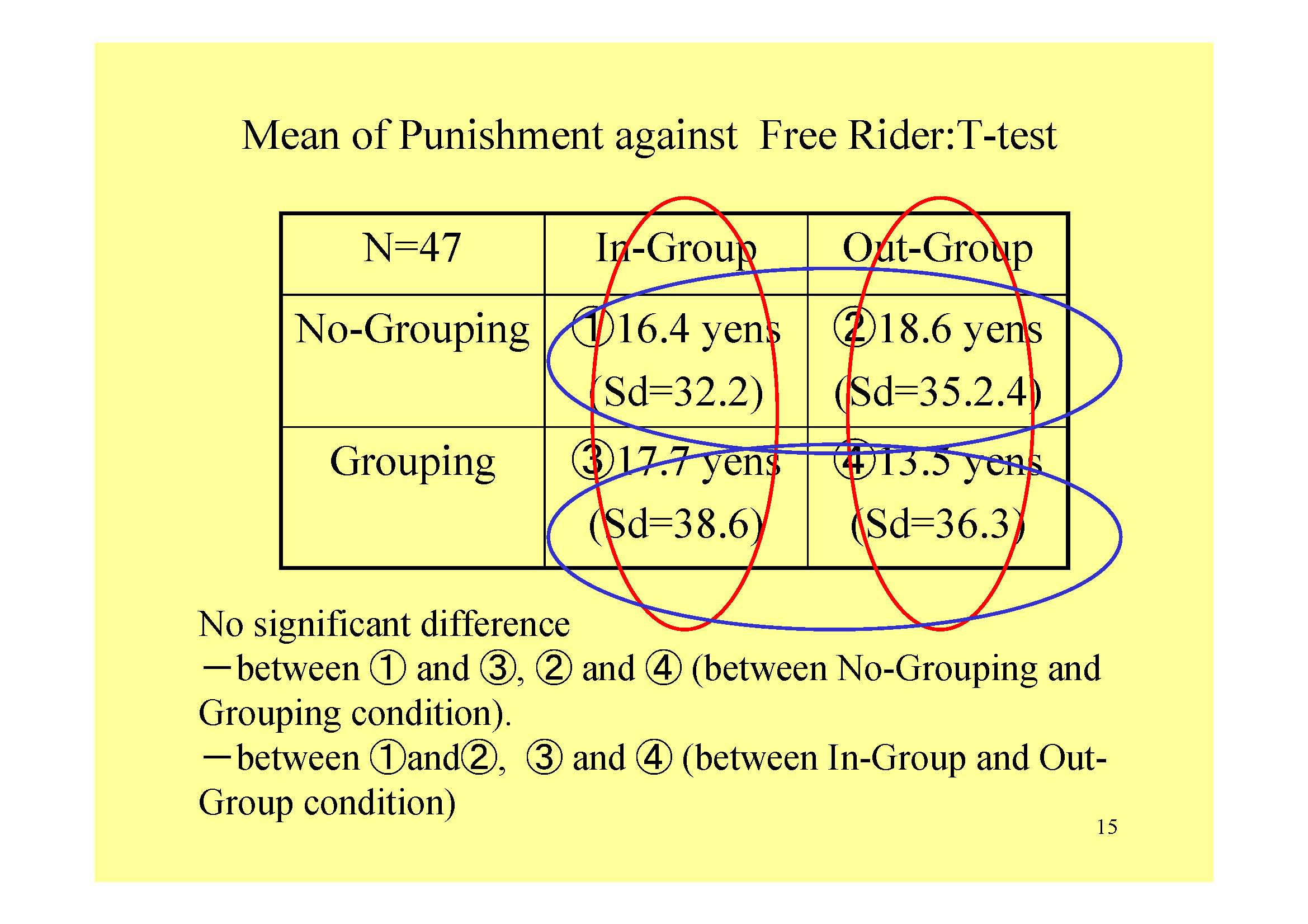

Kazumi Shimizu
(Waseda University)
Group affiliation and 'altruistic' punishment: Who provides 'altruistic'
punishment?


Over the past few years a considerable number of experimental studies have been made on the human behavior in the social dilemma situation. They suggest that the punishment behaviour leads to higher rate of contribution or to toward full cooperation. But the provision of punishment makes the second-order free-riding problem: group member free-ride on the costly punishment given by others. In spite of this problem, considering the group conflicts or competitions, the multilevel selection may allow the proliferation of an otherwise unviable trait: "altruistic" punishment (Bowles2004, Gintis 2000). And if the "altruistic" behaviour proliferates in this evolutionary process, it must have an evolutionary psychological base. To examine this we conducted a gift-exchange game experiment with punishment opportunity both in the no-group situation and in the group situation. Prior to the experiment, subjects are classified by their recent scores of their "sentiments" indices: general trust scale, trust care scale (developed by Yamagishi & Yamagishi, 1994), self-fairness scale, emotional sympathy scale and perspective taking scale. The results of the experiment (N=47) support following hypothesis: 1) Participants punish free riders more severely in the group situation than in the no-group situation. 2) Punishment against "free-rider" is driven by an emotion: fairness. "Fair" participants punish free rider independently of their group affiliation.